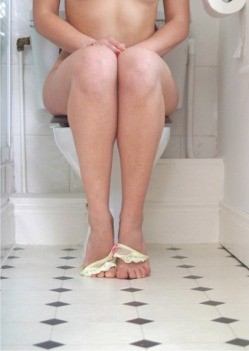 What is Incontinence?
What is Incontinence?
Involuntary leakage of urine can be a distressing problem, and may overwhelmingly affect the quality of life.
Women of all ages are twice as likely as men to experience incontinence, and one in three women over the age of 60 has problems with bladder control, which can result in depression and a reluctance to engage in physical or social activities. See Female Incontinence
Despite being such a common problem, the huge stigma attached to urinary incontinence means that many sufferers put up with years of misery before they get help, but with a professional urologist to advise and help you can be assured that all your health concerns will be seen to care and attention.
Types of Incontinence
Stress Incontinence
Stress incontinence is the leakage of small amounts of urine that occurs during activities which increase abdominal pressure such as laughing, coughing, sneezing, exercising or lifting something heavy. Read More…
Urge Incontinence
Urge Incontinence is a sudden, intense need to pass water that is quickly followed by leakage, with not enough warning to get to the lavatory in time. This may be triggered by the sound of running water, an abrupt change of position or even sexual climax. Urge incontinence sufferers often need to ‘go’ frequently, day and night.
Mixed Incontinence
Symptoms of both the above causes are combined in mixed incontinence: you may leak urine if you cough or sneeze, and also experience very sudden and powerful urges to pass urine.
Overflow incontinence
If you have overflow incontinence, you may want to go very often, but only pass a trickle of urine. It feels as though your bladder is never fully empty and you can’t empty it however hard you try.
Causes of Overflow Incontinence
One reason why the bladder doesn’t completely empty when you go to the toilet may be that the detrusor muscles in the walls of your bladder are not fully contracting, so the bladder becomes stretched.
This can happen if there is physical damage to nerves, perhaps after surgery, or if you are taking certain medication.
However, overflow incontinence can be caused by a blockage or obstruction to your bladder – the urine behind the obstruction builds up and leaks out. Blockages can be caused by bladder stones, obstructions by constipation, or, for a man, an enlarged prostate gland, which sits between the penis and the bladder.
Total incontinence
A much rarer condition, total incontinence occurs when your bladder cannot store urine at all, so large quantities are constantly passed, or occasionally passed with frequent leaking.
Total incontinence could be due to an injury to your spinal cord that cuts the nerve signals between brain and bladder, or a bladder fistula – an abnormal connection between the bladder and another organ or the skin, usually between the bladder and the bowel, or the vagina in women. They mostly occur after inflammatory bowel disease, injury, previous surgery or radiation therapy.
Risk Factors
Risk factors that increase the chance of developing urinary incontinence are:
- obesity (that’s a body mass index of at least 30)
- family history (a genetic link, particularly to stress incontinence)
- disability – particularly conditions affecting the brain or spinal cord, such as multiple sclerosis, Parkinson’s Disease or dementia
- Prolonged coughing, such as bronchitis, asthma or a smoker’s cough
- urinary tract infections (UTIS)
- certain surgical procedures in the vicinity of the urinary tract
- certain medications
- disability – particularly conditions affecting the brain or spinal cord, such as multiple sclerosis, Parkinson ’s disease or dementia
- increasing age
In women, particular risk factors include pregnancy and giving birth vaginally, as well as old age, especially after 70. Risk factors that increase the chance of developing urinary incontinence in men include prostatectomy – an operation to remove your prostate gland.
Treatment for urinary incontinence
Underlying health conditions will be treated first, and then treatments that don’t involve medication or surgery are explored. These are lifestyle changes and pelvic floor muscle or bladder training, combined with the use of discreet incontinence products that allow you to manage a chronic condition. Read More…
As a last resort, medication or surgery may be considered.
